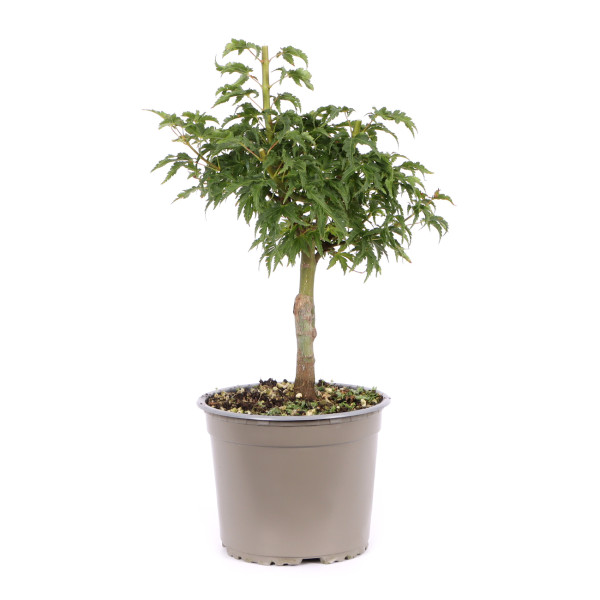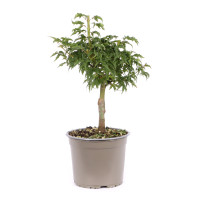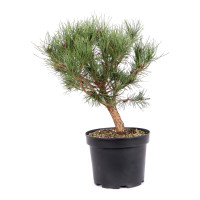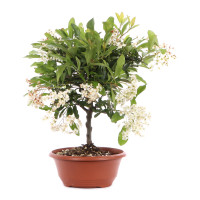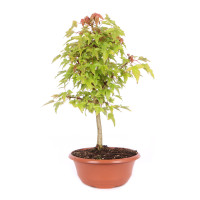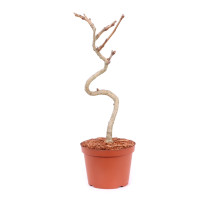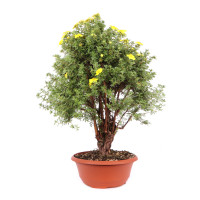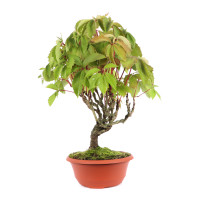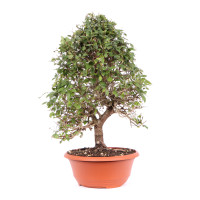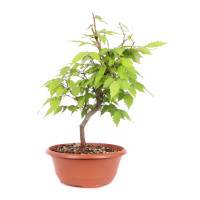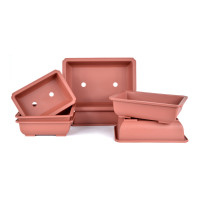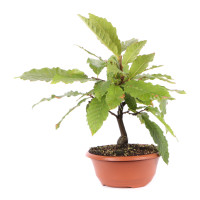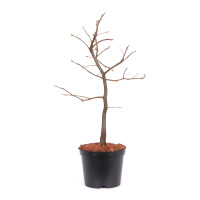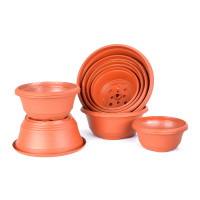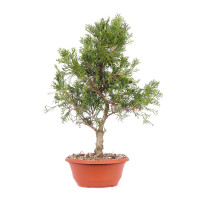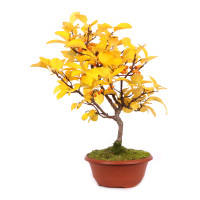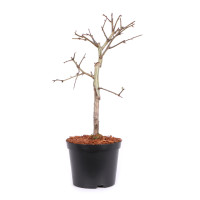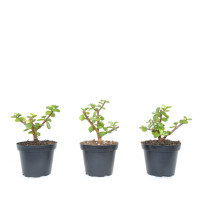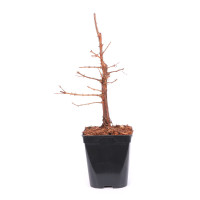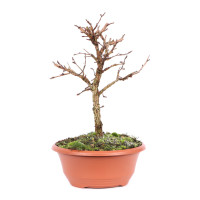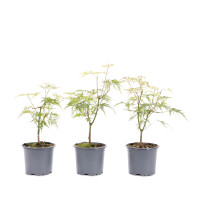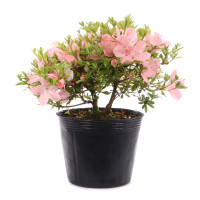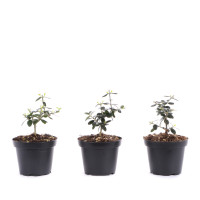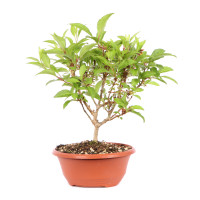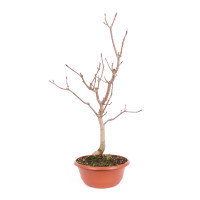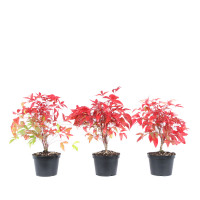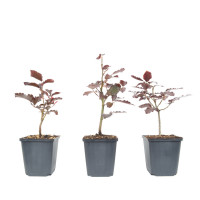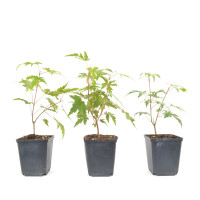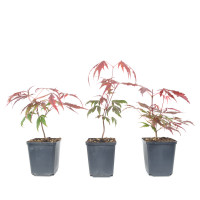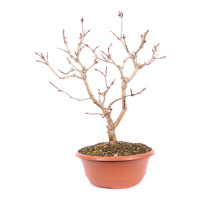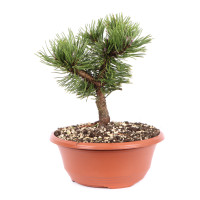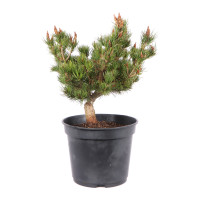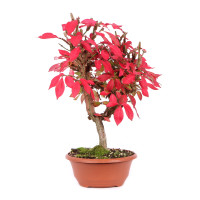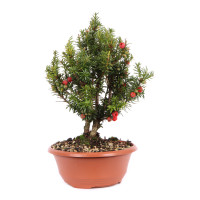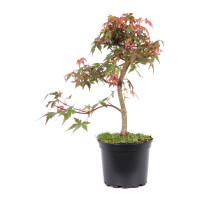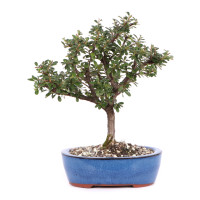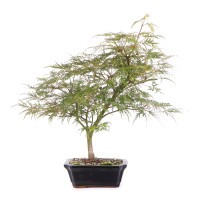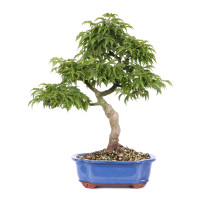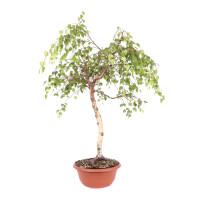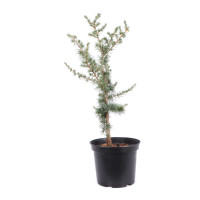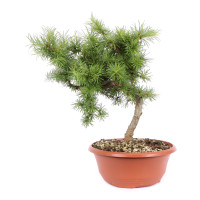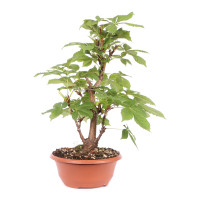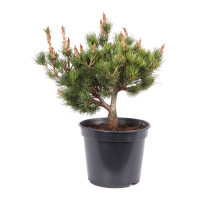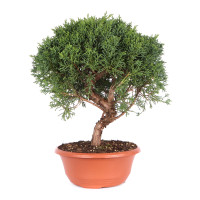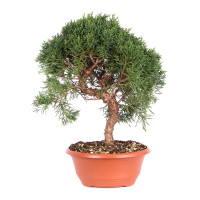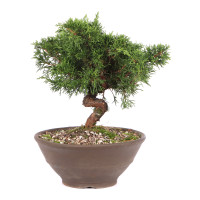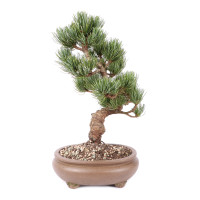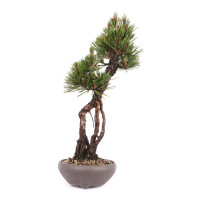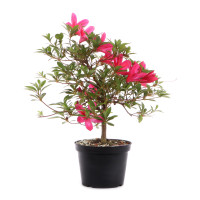- Order number: 1061-J-24-2663
- Height: 30 cm
- Foliage: deciduous
- Bonsai Pot: plastic pot
- Year: 2021
- Characteristics: attractive autumn colour
- Origin: Germany
Acer palmatum ‘Shishigashira‘ - Japanese Maple 'Shishigashira'
General:
The Japanese maple is native to Japan and Korea and grows here both in mountain forests and in the lowlands. As a large tree-like shrub, it is often multi-stemmed and the crown usually tilts over like an umbrella when old. The leaves are five to seven lobed and turn bright orange to red in autumn. There are also well over 100 cultivated forms in which the leaves differ greatly in size, shape and color.
Care as a bonsai:
The Japanese maple is probably the best-known Asian deciduous tree for bonsai design. The filigree branching with the delicate leaves often gives the bonsai a very graceful and graceful appearance. The bright autumn colors are also an asset to any bonsai collection. A bright location outdoors is important for all Japanese maples. The lighter the plants are, the stronger the leaf color. They only need to be shaded on extremely dry and hot summer days. The maple does not tolerate compacted, poorly ventilated and waterlogged soil. Root or fungal diseases can quickly develop here. The soil should not dry out, especially in summer. So it is best to use a loose substrate and carry out a regular root cut and repotting in fresh substrate in the spring. If possible, use rainwater or soft tap water for watering. Avoid hard water at all costs. It is fertilized in the growing season from May to October. In our experience, a topiary in June combined with a leaf cut is ideal. This avoids the "bleeding" of branches, the wounds heal very quickly and the new shoots are not too strong. The newly formed leaves are also smaller and more vividly colored. Wounds should be treated directly with a wound closure agent to prevent the ingress of pathogens. Good frost protection makes sense in winter.
Special features of the variety japanese maple 'Shishigashira':
The ‘Shishigashira‘ variety is from a selection of 'Acer palmatum ssp. amoenum' and has existed for more than a hundred years. It is unmistakable and has therefore also asserted itself in the evolving range of varieties. The plant grows slowly with short internodes and the typical, small and curled leaves that are reminiscent of a lion's head. In spring, bright red inflorescences also form, which create a great contrast to the light green leaves.

